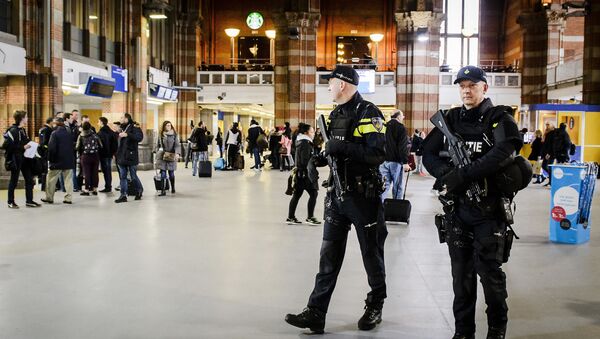The statement came amid warning issued earlier on Friday by the German Federal Criminal Police Office of a threat of new attacks on railway passengers following the Monday attack in southern Germany by an Afghan refugee, who was later shot dead by the police.
"Measures related to security screening have indeed been strengthened in the Netherlands and are under constant review to determine whether further reinforcement is needed," the spokeswoman said.
She stressed that the principle of checking whether a refugee poses a threat to national security and public order is equally applied to all migrants, irrespective of their religion and country of origin.
"None [of the measures] are designed for or applied specifically to persons from Muslim countries or of Muslim origin," she said, referring to the fact that most recent attacks — like the one in Germany and Nice — were perpetrated by Muslims claiming ties with the Islamic State terrorist group (outlawed in Russia).
In her words, before starting the asylum procedure, every applicant entering the country is identified, registered and screened by relevant experts of the police or border guards. Applicant's passports are checked for authenticity, names are run through databases and travel routes and motives for coming to the country are analyzed, in addition to language analysis.
"Also mobile phones may be screened as well as activity on the Internet and social media of the person in question," the spokeswoman added.
In mid-July, the National Coordinator for Terrorism and Security Dick Schoof said that the threat level for the Netherlands was still on "substantial" level 4 (out of total 5 levels), with a "real" possibility of a terrorist attack in the country, though with no concrete evidence that an attack was being planned.
Following numerous deadly attacks in Europe many experts on terrorism suggested that new attacks could be avoided if social accounts of migrants and radicalized citizens were better scrutinized.
On Wednesday, the Bavarian local parliament called on the government to provide police with more powers to follow Facebook, Twitter accounts and mobile phones of the asylum seekers. Currently, the German police are not authorized to do that.



